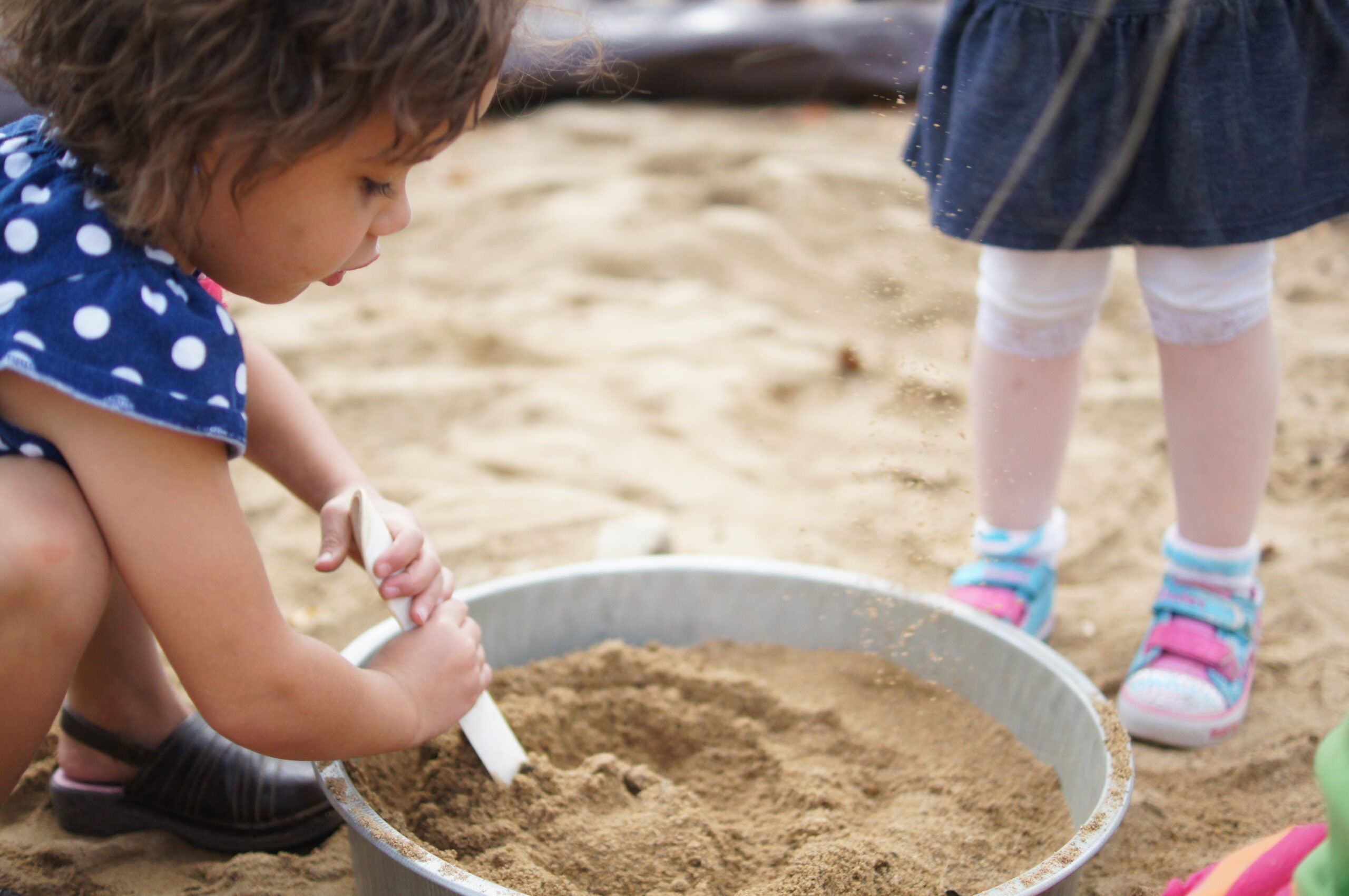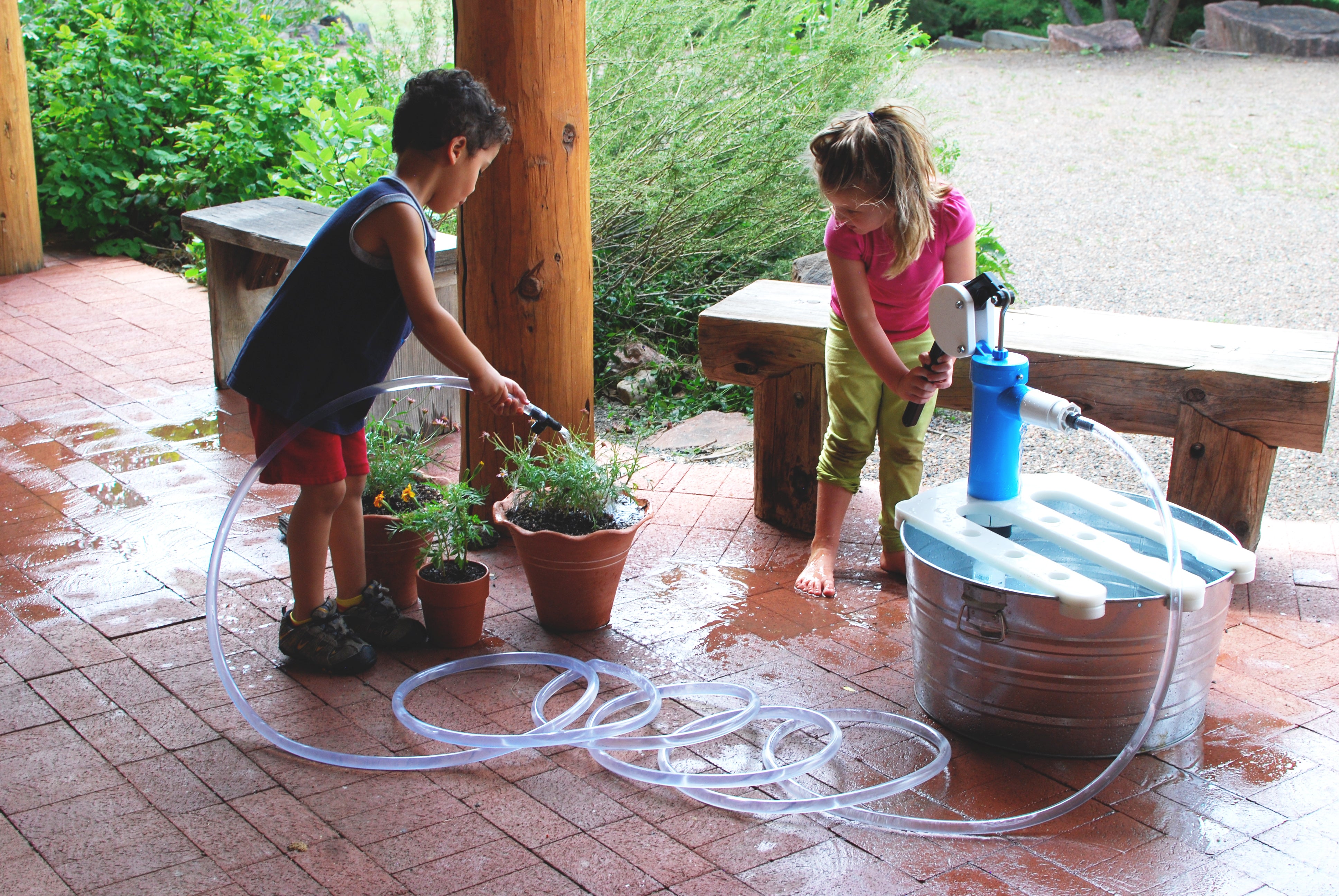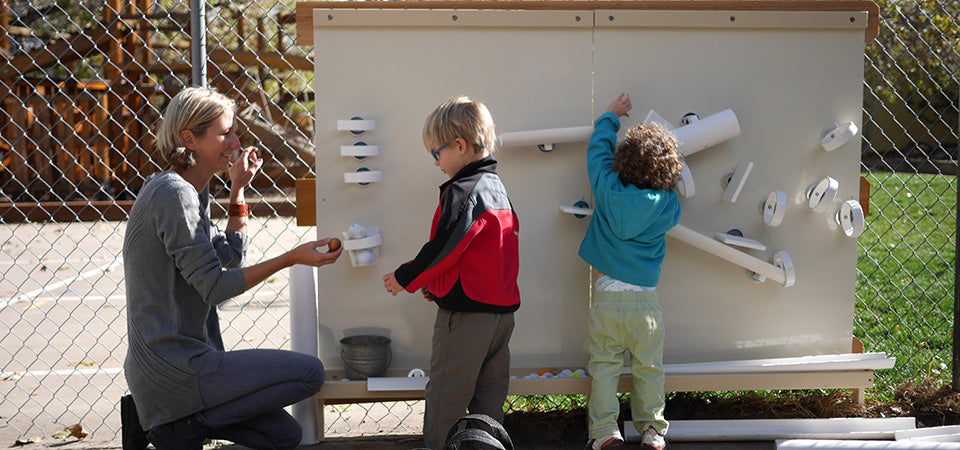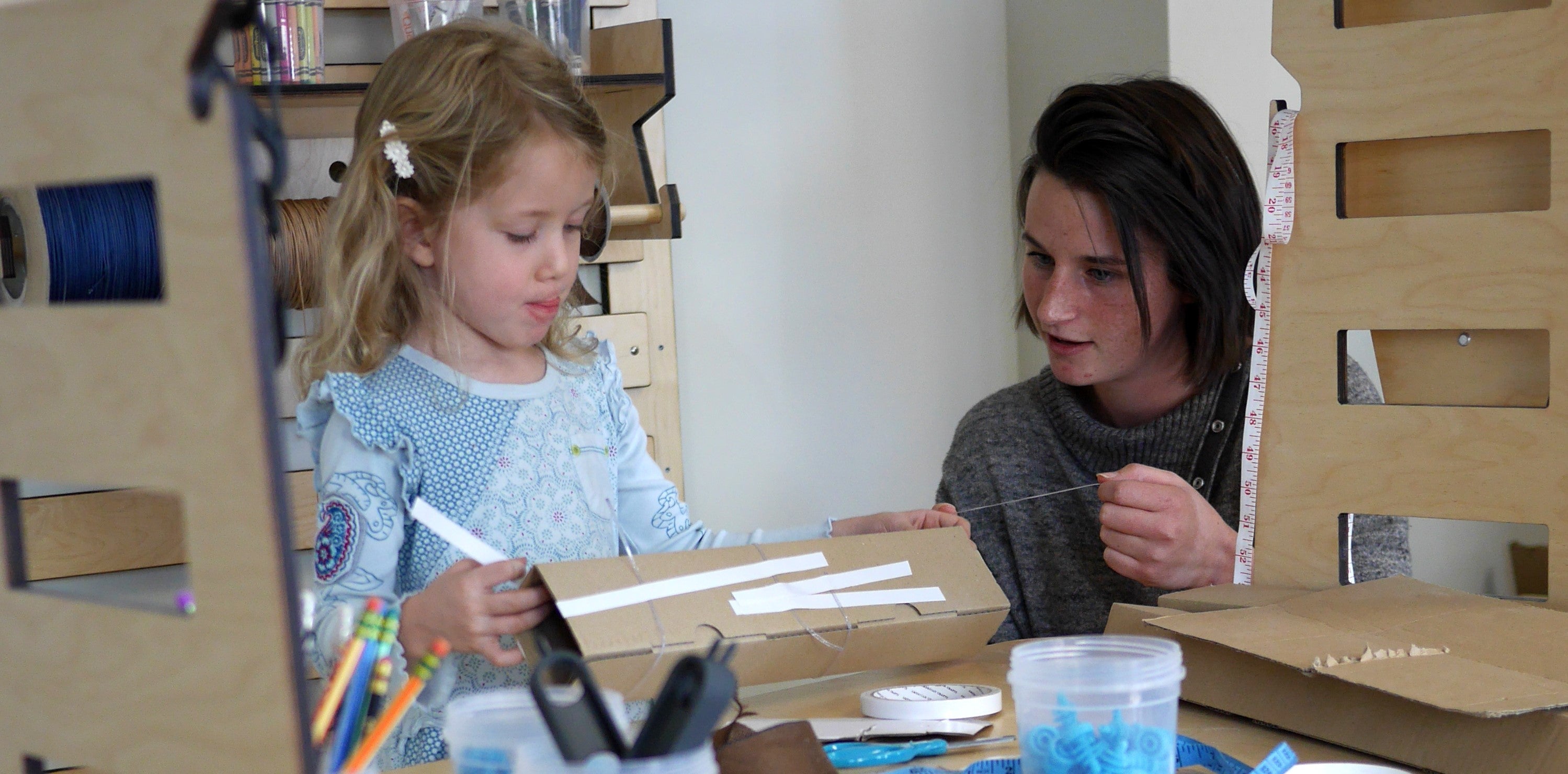Supporting SEL During STEM
Social-emotional learning (SEL) often authentically occurs throughout the learning environment during all sorts of learning experiences. It can be explicitly taught during its own focus lesson, but more meaningfully, it can be supported while children are naturally engaged in exploring and playing. If SEL is only taught in isolation, SEL concepts can seem very abstract, and young children may have a difficult time actually applying what is taught to them. Instead, when SEL is supported in more authentic ways it gives children an opportunity to actually exercise their SEL skills and further develop important SEL competencies in real-time, during real-life experiences.
Let’s take a closer look at the connection between STEM & SEL
When young children interact with STEM materials they naturally exercise a wide range of social-emotional skills. These types of interactions help to further develop children’s social-emotional competencies and serve as meaningful social-emotional learning (SEL) opportunities. Given this connection, it is important that as educators we introduce STEM materials with intention and planned support so that children have ample opportunity to engage in positive SEL while they interact with new materials.
Before introducing new STEM materials EDUCATORS should...
Play wih the materials
Examine material attributes
Experiment with different ways the materials can be used
Explore what materials pair well together
Before introducing students to new materials, it is important that as educators we set aside our own time to play and interact with the materials. By taking the time to play and interact with materials before introducing them to students, it provides an opportunity to reframe how we think about each material. Instead of initially worrying about how students may react to a given material or use the material in an undesired way, we can shift our focus to the usefulness of the material. This helps us gain insight into how our students may test, trial, and experiment with the many ways the material(s) can be used. This insight can inform how we introduce new materials, the questions we pose, and the way we react to students’ initial interactions. For example, with our focus on how the material functions as a tool, we can be more intentional about posing questions related to the material’s form and function.
The Introduction Phase: Making the Connection between STEM & SEL
A child’s social-emotional development can impact their willingness to try new things and influence how they interact with new materials. Additionally, young children are often still developing a better understanding of their likes and dislikes, and their strengths and weaknesses, and when they interact with new STEM materials they are faced with these new realizations. Additionally, as they tinker and explore they naturally encounter challenges that require them to tune into their social-emotional development and persevere through challenges. As educators, it’s our responsibility to anticipate this part of the learning process and provide scaffolding and support to ensure these new experiences spark positive SEL development and serve as a stepping stone for future growth. Our goal is to balance the level of support we provide so students have an opportunity to authentically explore and encounter challenges, while still remaining interested in interacting with the STEM materials. Given the important role SEL in plays in how we introduce new STEM materials in the classroom, it is important to consider children’s current social-emotional development before and during the introduction phase, especially in relationship to CASEL’s 5 SEL competencies.
Self-Awareness
A child’s self-awareness relates to their ‘understanding of self’. This includes their ability to identify their likes and dislikes, acknowledge their strengths, weakness, and limitation, and recognize their emotions. A child’s self-awareness also serves an important role in the development of a growth mindset and the mentality that current weaknesses or struggles are not fixed or permanent, but rather malleable and changeable, and that with practice and perseverance weaknesses and struggles can indeed turn into strengths and success.
Self-Management
A child’s self-management relates to their ability to regulate and respond to their emotions and impulses. New and intriguing STEM materials actually serve as a great tool to help children exercise and develop their self-management skills. When they show initiative and curiosity, they are exhibiting self-management. As they share and collaborate with their peers, they are developing the ability to regulate impulses and cooperate with others. As they preserve through challenges they are exercising their ability to manage frustration and exhibit self-motivation.
Responsible Decision Making
When a child tinkers and explores new materials they encounter problems that require them to think critically and creatively. This type of problem-solving helps children to practice responsible decision-making. Children have the opportunity to make connections between cause and effect based on the choices and decisions they choose to make and this level of understanding about the impacts their choices have helps children develop the ability to more productively plan and prepare.
Relationship Skills
Relationships skills relate to children’s ability to work cooperatively and collaboratively with others. When new STEM materials are introduced children will have ample opportunities to practice sharing, turn-taking, and communicating with others. They will naturally observe how their peers choose to interact with materials and learn from those observations. They may also become more comfortable sharing their own thoughts and ideas with the children and adults in the learning space and advance their own listening skills to gain insight and perspective from others.
Social Awareness
Building social awareness enables children to interact positively with others. The more children can relate to others, recognize the emotions of others, exhibit empathy, accept help, as well as offer help, the more likely they are to build meaningful relationships with peers and adults. As children develop social awareness skills they become more effective communicators and better team players.
Ways to Support Positive SEL during STEM
As educators, we want the children we work with to succeed. This often means providing just enough support and guidance without hindering children’s ability to think independently and authentically explore, experiment, and evolve. When we introduce new STEM materials we must ensure that we do so in a way that sets our students up for success but also ensures they encounter a productive level of challenge that requires them to think critically, be creative, and exercise important SEL skills, all while remaining interested and engaged!
Here are some tips...
Intentionally design learning environments so that children have enough space to move around, spread out, and share the space and materials within the space.
Intentionally choose materials that pair well with one another to increase the likelihood that children can find and design effective solutions when they encounter problems.
Discuss material attributes with children so they better understand how each material can be used as a tool. During these discussions make connections to other materials that share similar properties so that students feel more acquainted with the new materials.
Provide ample opportunities for children to explore and experiment with minimal teacher-directed instruction or influence so children can develop their own unique ideas, and experiment with the diverse ways materials can be used. This authentic exploration will help children gain a better understanding of their own likes and dislikes, and help them to better understand each new material.
Purposefully limit the number of materials available so students can hone in on fewer new items at once, think more creatively about how to use materials as tools, and provide plenty of opportunities for sharing and turn-taking.
Keep SEL support materials close by. Instead of keeping SEL tools like emotion cards, or calm-down toys in their own separate space, have them available to students for when they actually need them. For example, while a child is building with new STEM materials and they perhaps begin to exhibit frustration, it's a perfect time to help them work through their frustration. Don’t judge how the child is feeling or encourage them to not feel the way they do, but instead, provide some strategies they can use to more productively regulate and respond to that given emotion.
Cultivate a classroom climate that encourages children to try new things without the fear of failure or judgment. Embrace failure as an opportunity to learn so that children understand that mistakes or failed attempts are simply the stepping stones to success!
SEL is naturally occurring throughout your learning space, during all times of the day! Don’t feel overwhelmed about how you plan on adequately teaching SEL just within short windows of SEL-designated learning times. Instead, reframe how you think about SEL so you can truly support this important type of learning during all types of learning experiences!Join our Kodo Community and check out our recorded webinar titled: Introducing STEM Materials through a Social-Emotional Lens. Save the date! Our next webinar titled: Loving Problems in the Classroom: Reframing Challenges to Reduce Stress for Children and Adults is scheduled for July 20, 2023.
Social-emotional learning (SEL) often authentically occurs throughout the learning environment during all sorts of learning experiences. It can be explicitly taught during its own focus lesson, but more meaningfully, it can be supported while children are naturally engaged in exploring...
 There are many places to find tools for your mud kitchen and other outdoor preschool sensory activities! Your local restaurant supplier is a great place to look for interesting gadgets. Think about the possibilities for using turkey basters, fryer baskets, cooling racks, tea balls, mortars and pestles, hand mixers, and tongs of all shapes and sizes. Second-hand stores, garage sales, and your own shed and basement are other great places to look for unused bins, boxes, plates, and other tools for your mud kitchen. Even if you begin with just a few scoops and buckets, you’ll open the door to wonder and inquiry. Expert tip: have a bit of soapy water and a few towels standing by, this is one of those messy preschool activities!
At Kodo Kids, we support investigative play and the T in STEM with many great accessories. To further expand your sensory tools, we have whisks, mini mops, sand sifters, outdoor sifting diggers, and metal pails that can all contribute to a positive and inventive play session in the mud.
There are many places to find tools for your mud kitchen and other outdoor preschool sensory activities! Your local restaurant supplier is a great place to look for interesting gadgets. Think about the possibilities for using turkey basters, fryer baskets, cooling racks, tea balls, mortars and pestles, hand mixers, and tongs of all shapes and sizes. Second-hand stores, garage sales, and your own shed and basement are other great places to look for unused bins, boxes, plates, and other tools for your mud kitchen. Even if you begin with just a few scoops and buckets, you’ll open the door to wonder and inquiry. Expert tip: have a bit of soapy water and a few towels standing by, this is one of those messy preschool activities!
At Kodo Kids, we support investigative play and the T in STEM with many great accessories. To further expand your sensory tools, we have whisks, mini mops, sand sifters, outdoor sifting diggers, and metal pails that can all contribute to a positive and inventive play session in the mud.



Share:
Field Notes : Using Ice on the Magnetic Wall
#ILookLikeAnEngineer : How Preschool STEM Activities Can Change the Future